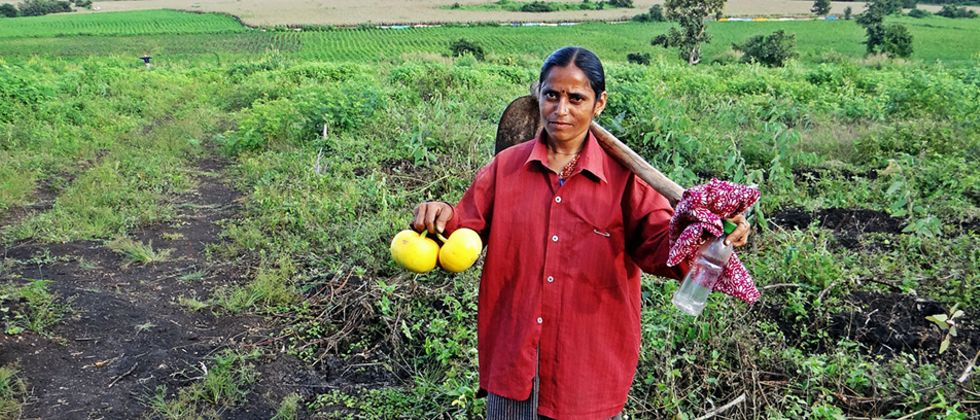California Management Review
California Management Review is a premier academic management journal published at UC Berkeley
by Kimberly Rotter

The idea for Bitcoin first appeared in a whitepaper just ten years ago, author unknown. Since then, the value has fluctuated wildly, from a low of less than one cent to a high of more than $20,000. While it’s common knowledge that there is virtually no such thing as a risk-free investment, this one seems especially volatile. Would you recommend it to a poor migrant worker as the vehicle for sending badly needed money home every week or month?
No one knows what will happen to Bitcoin’s value in the future. Only 21 million Bitcoins will ever be “mined,” or created, and about 17 million are already in circulation. A Bitcoin is currently worth about $6,700.
Bitcoin’s detractors and supporters point to some of the same characteristics as either advantages or disadvantages, depending on who’s talking: Bitcoin is unregulated. No banking system or government is in charge of managing or protecting it. Transactions are irreversible.
Supporters point to the lack of regulation as a good thing. Decentralization may insulate Bitcoin from disaster in the form of institutional failure. Deregulation also leads to extremely low transaction fees, especially compared to credit cards and money transfers.
Detractors point out that the lack of regulation around Bitcoin means there is no entity to which Bitcoin owners can file a grievance or report theft or loss.
One especially promising use case is for financials transfers. A report from the United Nations includes the stated goal to make money transfers easier and cheaper. Migrants from the Asia-Pacific region sent $256bn home in 2017. This money accounts for 60 percent of the home family’s income, and the workers paid an average of 7 percent in fees for the transfers, which is nearly $18bn.
Enter Abra, a smartphone payment app that handles 50 currencies, including Bitcoin. Abra is a digital wallet that allows users to send cash cross-border by purchasing (and then sending) Bitcoin at current market prices. The recipient can withdraw the funds via bank transfer, debit card or cash at an Abra teller. Bill Barhydt, the founder of the company and subject of a recently published business case study, sought a cross-border, bankless money system. “I wanted… a single application that globally would allow you to send money between two phone numbers. I’m in Miami and somebody is in Italy and I randomly want to send them money. Today, [it’s] extremely difficult to do that, especially if you’re talking about small dollar amounts. If you’re lucky enough that both parties are banked, you would not want to send someone $20 if it costs you $20 to send them the money,” he says. And so, he embarked on a mission to create the “WhatsApp of money.”
Direct payer-to-payee transactions have the potential to drastically lower costs but at the expense of financial safety nets. Abra stands to upend the international money transfer industry (Western Union and the like) by providing a free way to internationally transfer funds. The potential benefit to the world’s lowest income populations cannot be overstated with $18bn in fees last year that could be returned to workers’ pockets.
“The litmus test for me is going to be when all of you get your moms and dads to download Abra and you send them Bitcoins, and they see dollars on their phones and withdraw it to their Bank of America account, and you then tell them two weeks later that you sent them Bitcoins and they didn’t know it,” said Barhydt of his goals for wide acceptance of the app.
“The litmus test for me is going to be when all of you get your moms and dads to download Abra and you send them Bitcoins, and they see dollars on their phones and withdraw it to their Bank of America account, and you then tell them two weeks later that you sent them Bitcoins and they didn’t know it.”
Is it ethical to represent Bitcoin to some of the most vulnerable populations in the world as an asset that is just as safe as money in the bank?
It’s not hard to imagine that many people using international money transfer services are less than savvy when it comes to investment and risk. Most people, in fact, are not investment experts. Do the moms and dads Barhydt speaks of understand that using Abra puts their money at risk?
If you invest in Bitcoin and the value goes south or disappears, you’re out of luck. Even a forgotten password can lead to unrecoverable financial loss. Then what becomes of those consumers who put their eggs into Abra’s basket? These are consumers who quite possibly cannot afford to risk the loss of their money. Perhaps the cost savings in the interim – the money saved on transfer fees – is a fair trade for the risk. The cost savings could be so great, however, that there is no real “choice” for the low-income customer but to use the app.
The key question is one of awareness. In order to responsibly roll out a potentially beneficial app like Abra to the smartphone users of the world, the app and its backers must figure out a way to educate users on the risks, benefits, and alternatives.
This article is based in part on the case study “Abra: A Global P2P Payment System” by UC Berkeley Lecturer David Charron.